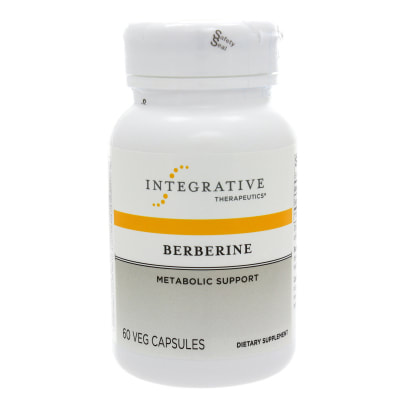 Berberine Berberine These statements have not been evaluated by the Food and Drug Administration. These products are not intended to diagnose, treat, cure or prevent any disease. Berberine is a chemical found in several plants including the European barberry, goldenseal, goldthread, Oregon grape, philodendron, and tree turmeric and belongs to a class of compounds called alkaloids. It is said to have powerful effects similar to that of a pharmacological nature and has been used for centuries in Chinese medicine. It is just now coming of age in modern nutritional medicine in the treatment of diseases such as diabetes. How Does Berberine Work? Berberine is known to stimulate insulin secretion and to activate AMPK, an enzyme known to regulate cellular energy metabolism. Its primary actions are to:
Effectiveness of Berberine in Diabetic Patients: Berberine has been found to act in a similar manner as the commonly used diabetes drug Metformin. It is not clear whether metformin and berberine undertake all actions via the same mechanisms, or some via similar and other different mechanisms. While the severe adverse gastrointestinal side-effects that interfere with metformin compliance are generally absent in berberine treatment, treatment with both berberine and metformin (or other oral hypoglycemics) has been found to be superior in controlling glucose than either treatment alone. Dosage and treatment duration may vary with the patient’s age. Data suggests that berberine therapy becomes unremarkable in treatments lasting more than 90 days or in amounts greater than 2 grams. Further clinical studies of longer duration are needed in this area. The most effective dose is 500 mg three times a day. Because most anti-diabetic drugs cannot be used in patients with hepatic dysfunction, renal disease, and heart disease, this makes pharmacological therapy of type 2 diabetes complicated and the use of other nutraceuticals such as berberine more desirable. Current studies have reported the significance of berberine against oxidative stress and inflammation in cells, elaborating its vital role in diabetes mellitus. Generally, a decrease in blood glucose level by 20%–40% is reported in fasting patients treated with berberine alone, this effect resembles that of rosiglitazone and metformin treatment. Application: Preliminary research from both animal and human studies indicate that berberine therapy in dosages of 500 mg three times per day may be an advantageous treatment for diabetes type 2 either alone or in conjunction with other hypoglycemics for optimal blood sugar control with minimal adverse side-effects. The mechanisms of action of berberine mirror those of the common anti-diabetic drug metformin without the severe diarrhea side-effects that adversely affect medication compliance. Further long-term studies are needed on human subjects to identify exact mechanisms of action and duration of treatment best utilized for long term blood sugar control of diabetes. #berberine #AMPK #diabetes #blood sugar #type 2 diabetes #metformin These statements have not been evaluated by the Food and Drug Administration. This information is not intended to diagnose, treat, cure or prevent any disease.
0 Comments
|
Author
|

 RSS Feed
RSS Feed